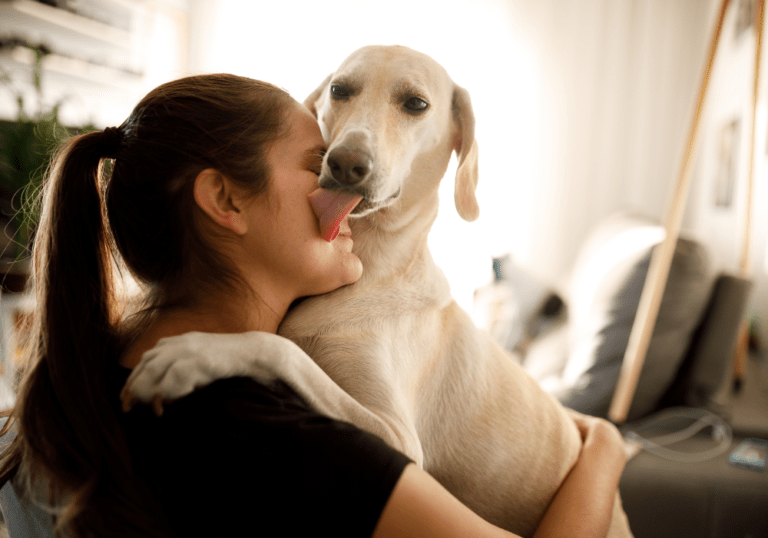Can My Dog Give Me a Blood Infection?

When it comes to showing affection, dogs have their own unique ways, and licking is often one of them. However, as charming as this behavior can be, it raises a critical question for pet owners: Can my dog give me a blood infection? While the chances are low, it is essential to understand the potential risks associated with canine bacteria and how to protect yourself.
Understanding the Risks: What Types of Infections Can I Get from My Dog?
Dogs can carry various bacteria that might lead to infections in humans. Some of the most common include:
- E. coli
- Salmonella
- Campylobacter
These bacteria can affect your gastrointestinal system, resulting in symptoms like diarrhea, abdominal cramps, nausea, and fever. Although these infections can be serious, particularly in vulnerable populations like the elderly or those with weakened immune systems, a more severe risk comes from Capnocytophaga canimorsus.
What is Capnocytophaga canimorsus?
Capnocytophaga canimorsus is a type of bacteria found in the saliva of dogs that can lead to severe infections. Initially, an infection may present flu-like symptoms, which can escalate to headaches, muscle pain, fever, vomiting, abdominal pain, and confusion. Alarmingly, about 30% of people infected with Capnocytophaga canimorsus may face life-threatening consequences, according to the Centers for Disease Control and Prevention (CDC).
Potential Complications from Capnocytophaga Infections:
- Cellulitis: A bacterial skin infection that causes swelling, pain, and redness, often affecting the lower legs.
- Low Blood Pressure: An infection can drop your blood pressure to dangerous levels, risking blood flow to your limbs and potential amputation.
- Sepsis: A life-threatening condition triggered by the body’s immune response that can damage organs.
- Disseminated Intravascular Coagulation: This condition involves abnormal blood clotting that can result in organ damage and serious bleeding.
Who Is at Risk for Capnocytophaga?
While your skin acts as a protective barrier against infection, areas like the mucous membranes of your eyes, nose, and mouth are less secure and can allow bacteria to enter. Most healthy individuals who occasionally receive dog licks on their skin or face do not become ill. However, certain factors can increase the risk of infection, including:
- Loss of the spleen
- Cancer
- Chronic obstructive pulmonary disease (COPD)
- Diabetes
- Excessive alcohol use
- Grave’s Disease
- Immune system disorders, such as HIV/AIDS or chemotherapy treatments
If you have any of these health conditions, even a minor lick or bite from your dog can lead to a Capnocytophaga infection.
How Can I Avoid Blood Infections?
If you are in good health, the likelihood of developing a Capnocytophaga infection is very low. Nonetheless, there are precautions you should take:
- Avoid Dog Licks on Open Wounds: Ensure that your dog does not lick any cuts, scratches, or open wounds on your skin.
- Seek Medical Attention for Bites: If your dog bites you and breaks the skin, consult our doctors at Willow Glen Pet Hospital immediately. Bites can lead to infections, and you may require a tetanus shot or antibiotics.
- Be Cautious with Face Licking: If your dog enjoys licking your face, especially after sniffing feces or dead animals during walks, you might want to reconsider this behavior. Although you may not get sick, avoiding face licks is a simple preventive measure.
- Manage Risk Factors: If you are at higher risk for infections, avoid allowing your dog to lick you altogether. Consider distracting your pet with a toy when they attempt to lick you.
Conclusion
While the idea of a dog giving you a blood infection might sound alarming, the reality is that such infections are relatively rare, particularly in healthy individuals. By understanding the risks and taking appropriate precautions, you can continue to enjoy the companionship of your furry friend without unnecessary worry.
If you have any questions or concerns about your dog’s behavior or your health, don’t hesitate to consult our doctors at Willow Glen Pet Hospital.
If you need more help or have any questions, call us at Willow Glen Pet Hospital, (669) 342-7472
1033 Willow Street, San Jose, CA, 95125, US
Hours: Monday – Saturday 8:00 am – 6:00 pm
Dr. Gillon or Dr. Shani or visit us online.
